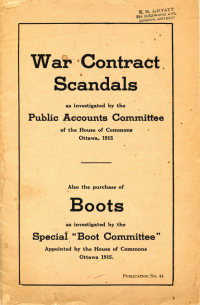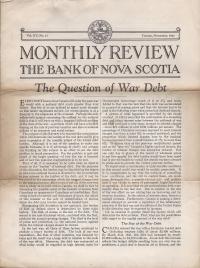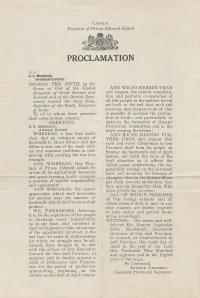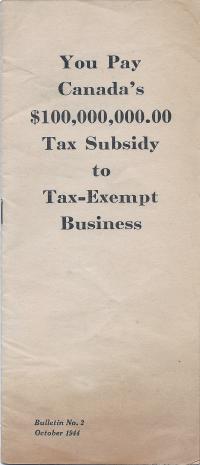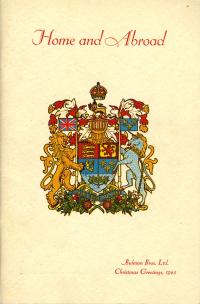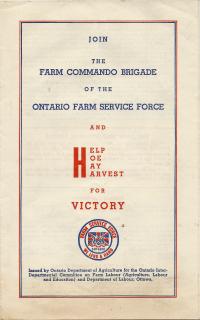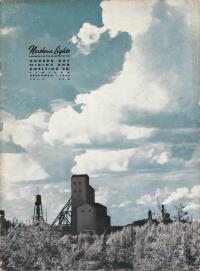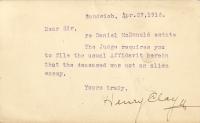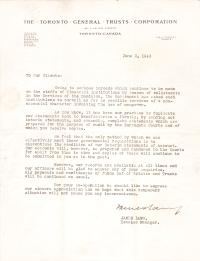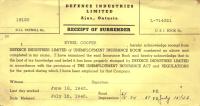Working
War Contract Scandals
This collection of War Contract Scandals, investigated by the Public Accounts Committee, was released by the Liberal party to demonstrate the government's misuse of thousands of dollars, on such wastes as horses unfit for service, overpriced drugs, poor-quality binoculars, submarines rejected as unfit by other governments, and defective Shield-Shovels. Also included are the results of investigations by the special Boot Committee.
The cost of war
With the realization that Canada would face unprecedented spending demands, greater even than those faced in the First World War, one bank provided a sober analysis of the problem of growing war debt as it looked early in the Second World War.
Feeding the cause of righteousness
In 1918, in recognition of the importance of food to the Allied war effort, the province of Prince Edward island proclaimed the week of 22 April to be "a week of Dedication and Preparation" for the coming planting season.
What's wrong with Canada's tax policy?
This address by G.S. Thorvaldson contrasted wartime, when taxation was a "patriotic duty," and peacetime, when it became "an economic and social problem." He made the case that big corporations stood to gain the most in both contexts.
The printing business in wartime
This souvenir publication by a Winnipeg printing and lithographing business honoured employees who had volunteered for military service and detailed the company's wartime work.
Helping out on the farm
With so many labourers in uniform during the Second World War, Ontario's farmers desperately needed workers to help bring in the harvest - hence this appeal to "store keepers, professional men, retired folk, industrial workers, housewives and young men at home."
Strategic minerals
The workers of HBM&S processed zinc, copper, and cadmium, and their company magazine not only kept them current on news around the company, but also reminded them that their work was essential to the war effort.
Daniel McDonald, enemy alien?
During the First World War, the property of enemy aliens might be subject to seizure by the federal government - a possibility that generated extra work for the courts and the legal profession.
Wartime cutbacks
During the Second World War, the demands of the wartime economy meant that non-essential tasks - like the issuance of certain financial statements - had to be curtailed.
Out of work
The Second World War brought full employment to Canada, but it also brought the Unemployment Insurance Act. This card indicated that Ethel Cooper had received an unemployment insurance book when she stopped working at a Toronto-area munitions factory.

